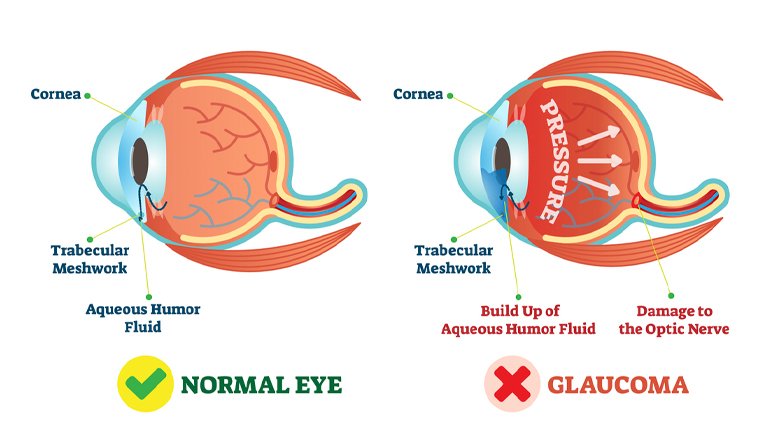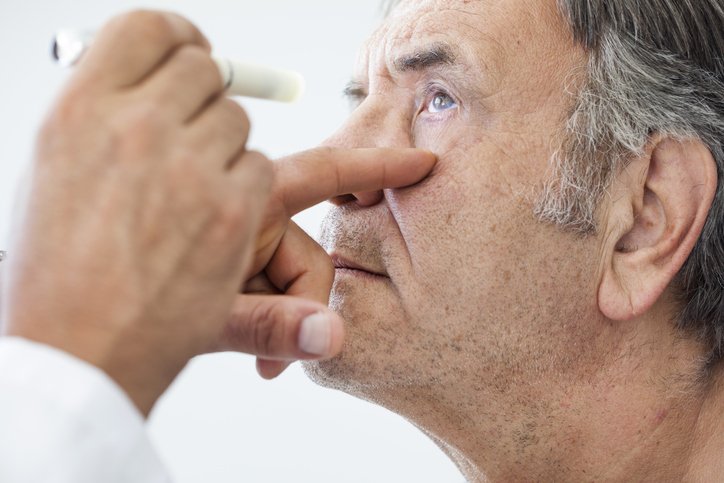Glaucoma Treatment
Most treatments for glaucoma are designed to lower and/or control intraocular pressure (IOP), which can damage the optic nerve that transmits visual information to the brain.
Glaucoma eye drops often are the first choice in glaucoma treatment over glaucoma surgery and can be very effective at controlling IOP to prevent eye damage. If you are a good candidate for glaucoma eye drops, you may be prescribed more than one type to achieve the best IOP control. In fact, many types of glaucoma eye drops can enhance the effects of other types.

Depending on your general health and other medical conditions, however, you may be a poor candidate for glaucoma eye drops. This is because medications placed in the eye are absorbed into the conjunctival blood vessels on the eye’s surface. A certain percentage of the active ingredient of the medication, though small, will enter the bloodstream and may adversely affect functions such as heart rate and breathing.
Likewise, some types of eye drops may worsen certain existing medical conditions such as asthma. Some glaucoma drugs also can interact with other common medications such as digitalis, prescribed for heart conditions. So make sure you discuss these issues with both your family physician and your eye doctor.
Glaucoma Surgery
All glaucoma surgery procedures (whether laser or non-laser) are designed to accomplish one of two basic results: decrease the production of intraocular fluid (aqueous humor) or increase the outflow (drainage) of this same fluid. Occasionally, a procedure will accomplish both.
Currently the goal of glaucoma surgery and other glaucoma treatment is to reduce or stabilize intraocular pressure (IOP). When this goal is accomplished, damage to ocular structures – especially the optic nerve – may be prevented.
No matter the treatment, early diagnosis is the best way to prevent vision loss from glaucoma. See your eye care practitioner routinely for a complete eye examination, including a check of your IOP. People at high risk for glaucoma due to elevated intraocular pressure, family history, ethnic background, age or optic nerve appearance may need more frequent visits to the eye doctor.
Call us at 413-733-1818 to set up an appointment.

